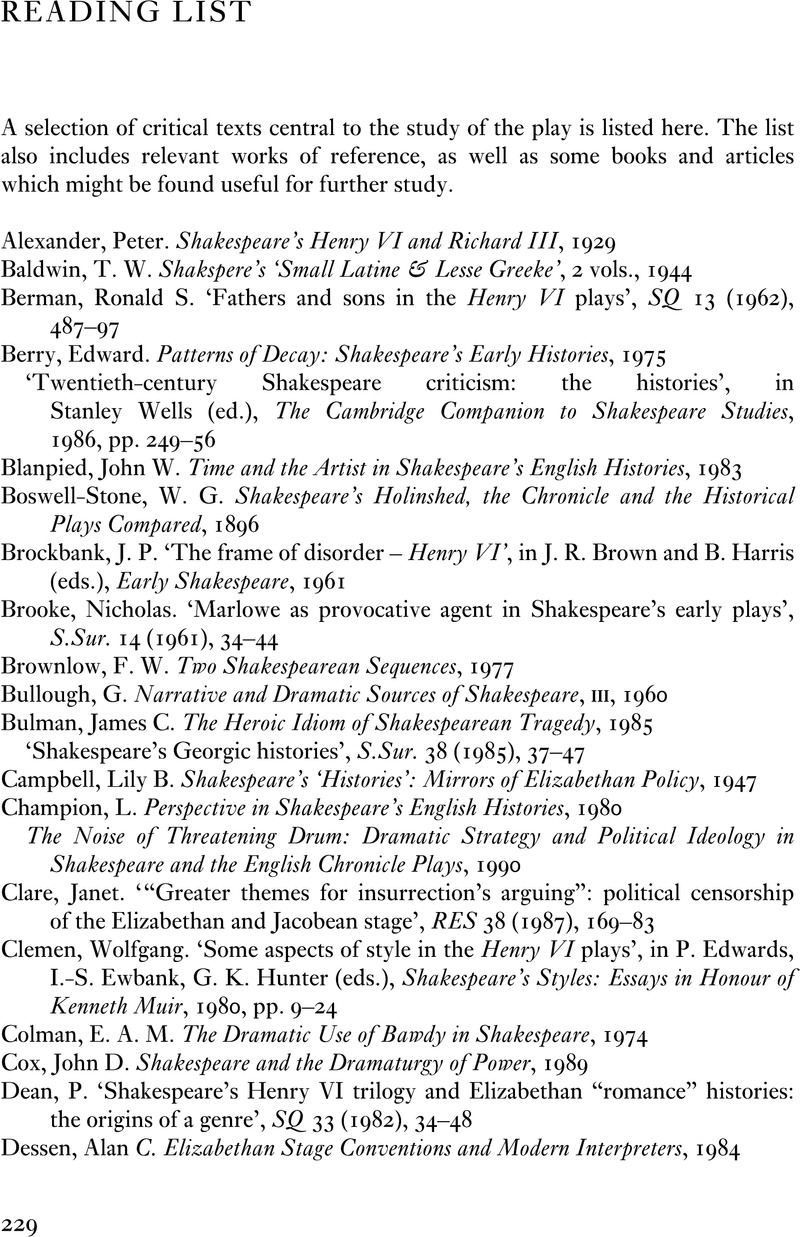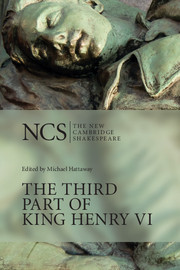Book contents
- The New Cambridge Shakespeare
- The New Cambridge Shakespeare
- The Third Part of King Henry VI
- Copyright page
- The New Cambridge Shakespeare
- Contents
- Illustrations
- Preface
- Abbreviations and conventions
- Introduction
- Note on the text
- The Third Part of King Henry VI
- Textual analysis
- Book part
- Reading List
- References
Reading List
Published online by Cambridge University Press: 16 August 2019
- The New Cambridge Shakespeare
- The New Cambridge Shakespeare
- The Third Part of King Henry VI
- Copyright page
- The New Cambridge Shakespeare
- Contents
- Illustrations
- Preface
- Abbreviations and conventions
- Introduction
- Note on the text
- The Third Part of King Henry VI
- Textual analysis
- Book part
- Reading List
- References
Summary

- Type
- Chapter
- Information
- The Third Part of King Henry VI , pp. 229 - 231Publisher: Cambridge University PressPrint publication year: 1993

